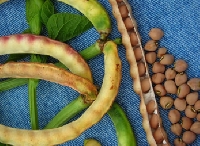
Here is what you need to know about organic seeds for eco-friendly gardening
Organic gardening can be a fun and richly rewarding activity; and for some, it can even feel like a calling. But in the midst of all the composting, companion planting, buck picking, weed pulling, and mulching, one vital element of the organic garden is often overlooked, and that’s the seed.
What’s in a Seed
You might think that all seeds are created equal, but you would be wrong. Organic seeds are different from their conventional counterparts in some obvious ways, and some not so obvious.
On the surface, the organic variety are harvested from organically grown parent plants. This means the seeds have never come in contact with chemical pesticides, herbicides, or fertilizers. This alone should tell you that the very best start for your organic garden is with organic seeds. But, beyond that, organic seeds also come from plants which have been specifically cultivated to thrive in organic surroundings.
The conventional corn seeds you see on the shelf came from plants which were grown utterly dependent on chemicals to thrive. They are used to being doused with poisons to rid themselves of pests, to sucking up chemicals for nutrients from the otherwise barren ground, and never had to compete with native weeds due to regular applications of glyphosate (Round-Up) on and about their person.
~
Stick them in an organic garden teeming with lives which don’t revolve around them, and they may wither and die from lack of artificial life support.
Organic seeds, however, come from stronger stock, and are used to making their own way in the world. These are the players you want, if you don’t want to deal with a bunch of prima donnas who require special potions just to put off a little fruit.
The Power of Choice
Spring is in the air, and there you are at your local garden center, taking in the wondrous site of packets upon packets of seeds. The variety at first seems immense, but then you realize, after your second or third trip to various stores, that everyone seems to carry the same two hybrids of corn, the same two or three varieties of carrots, and maybe only one kind of cabbage or celery.
Is this really all there is?
If you dig a little deeper, you will come across some telltale words which will lead you to a myriad of options, the likes of which you may have never dreamed (or thought were long extinct). You see, our grandparents’ grandparents, and their grandparents before, had access to many more crop varieties than the average gardener today. Unless, that is, you know where to look.
What you need to search for are words like ‘heirloom’ and ‘organic.’ Seed companies who care about preserving the diversity of our food crops are diligent about carrying old tried and true varieties which rarely make the supermarket shelves.
You have probably heard the term ‘heirloom tomato,’ since that lovely luscious fruit tends to be the centerpiece of any home garden. Beyond the trusty Better Boy and Beefsteak varieties, tomatoes come in all shapes and sizes, and a rainbow of colors. Each tomato has a unique flavor, and they all have different temperaments. Tomatoes that do well on the east coast may not fair the same in the hot southwest. Some tomatoes are drought tolerant, some do better where it’s humid, and some can give you big, fast returns where you might have a very short growing season. In an organic garden, selecting varieties which are proven to do well in your area is vital.
Once you know what to look for, your eye will instantly be drawn to those little sections in the hardware store showcasing organic heirloom seeds. But, if you want access to more than just what the retailers carry, then you need to turn to the internet. Online seed catalogs are where it’s at.
Here you can get tons of information on the source of your seed and in what growing environments different varieties will thrive. Organic seed companies are proud to showcase their vast array of options, and positively beam at the idea of gardeners growing yet another generation of the plants they are working to hard to preserve.
If you want rare, you want different, or you just want tried and true for your chemical-free garden, start with the right seed. The rewards will be worth it come harvest time.

